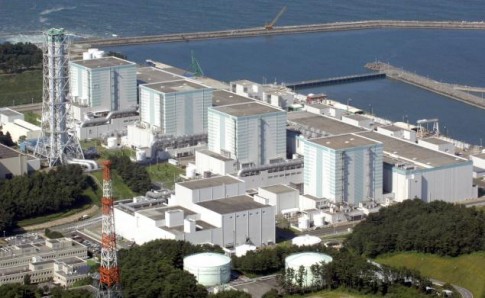The Japanese government said Wednesday that it is considering banning entry into the 20-kilometre exclusion zone around a damaged nuclear power plant that is leaking radiation, DPA reported.
Chief Cabinet Secretary Yukio Edano said some people had entered the off-limits zone, "so as one way to effectively prevent this, we are talking with local officials about setting up legally binding 'caution areas.'"
The government directed residents within 20 kilometres of the Fukushima Daiichi Nuclear Power Station to evacuate and those in areas 20 to 30 kilometres away to stay indoors or leave voluntarily.
Prime Minister Naoto Kan was expected to announce the restrictions on entry into the exclusion zone Thursday during a visit to Fukushima prefecture, the Kyodo News agency reported, citing unnamed government sources.
The measure was aimed at enhancing government control of the area where some residents have temporarily returned home on their own to pick up belongings despite radiation fears caused after the plant was crippled by a magnitude-9 earthquake and tsunami on March 11, Kyodo said.
Meanwhile, the French nuclear energy firm Areva SA plans to install a facility to decontaminate radioactive water at the plant 250 kilometres north-east of Tokyo, chief executive Anne Lauvergeon said.
Areva said the company would try to get the system up and running by the end of May, as requested by the plant operator, the Tokyo Electric Power Co (TEPCO), the Jiji Press agency reported.
The system would be capable of decontaminating 50 tons of water per hour, she said Tuesday, adding that radiation levels of the water would drop to one-1,000th to one-10,000th after the treatment, Jiji said.
Areva was also ready to support TEPCO in disposing of spent nuclear fuel and decontaminating soil in and around the plant, she said.
TEPCO said it approved Areva's proposal and that the operator would transfer the contaminated water into a waste facility at the plant. About 1,200 tons of the water would then be decontaminated every day. The company said it hoped to use the decontaminated water to cool the plant's overheating reactors, Jiji said.
Meanwhile, the International Atomic Energy Agency (IAEA) is to dispatch a team of experts to Japan to investigate the cause of the nuclear crisis.
Denis Flory, deputy director general of the IAEA, said in Vienna that the agency would send its first fact-finding mission to the Fukushima plant before a high-level meeting on nuclear safety at the end of June in the Austrian capital.
The team of experts would investigate the cause of the accident and the safety measures taken after the plant was damaged by the March disaster, he said.
The agency would consult with the Japanese government to decide when to conduct the investigation, the Japanese public broadcaster NHK reported.
The agency hoped that the team would make proposals to improve the situation so those who had evacuated from the exclusion zone around the plant because of radiation leaks could return home as soon as possible, Flory said.
Flory also said the amount of radiation released by the plant was expected to decrease substantially if efforts to bring it under control go as planned.
The Tokyo Electric Power Co (TEPCO), the plant operator, said this week that the company hoped to restore stable cooling to the plant's six reactors in three months and be able to get the whole plant under control within nine months.






